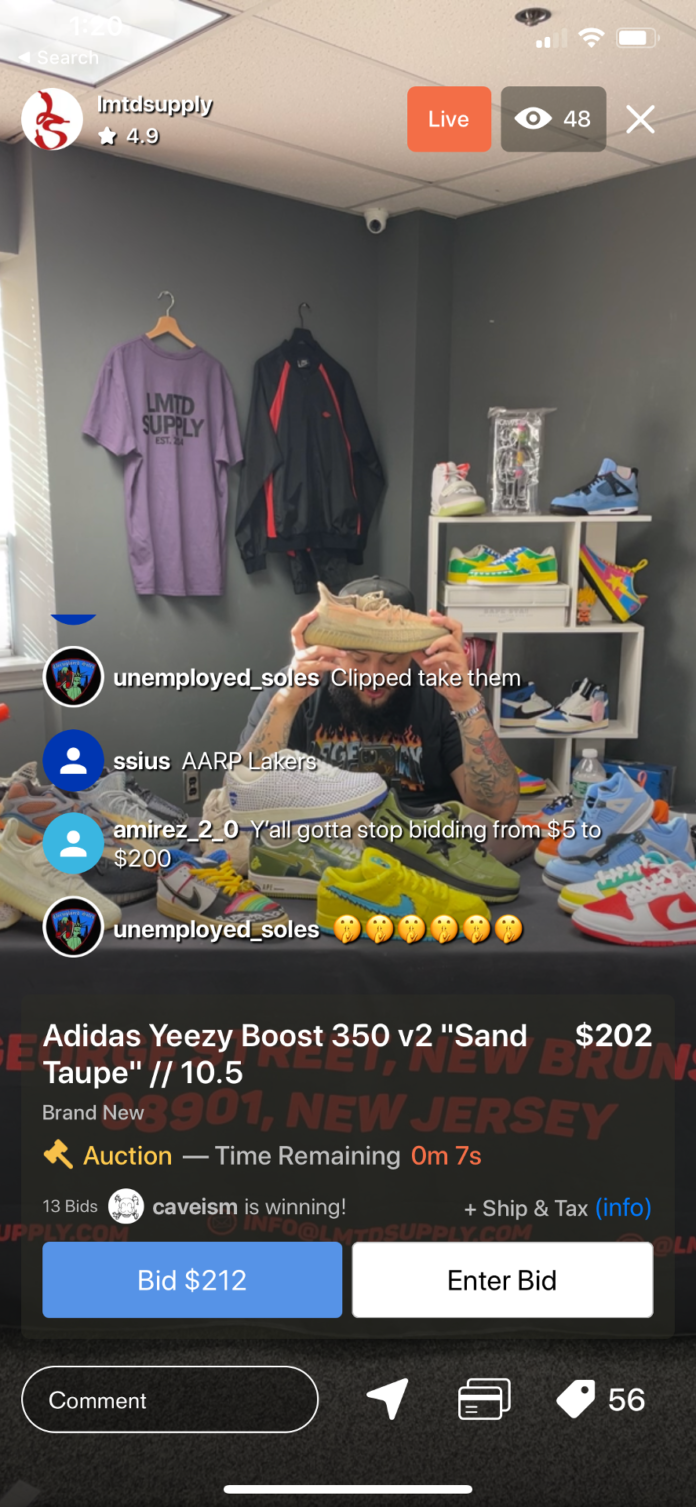But over the span of 10 months, his channel on the app, World Card Traders, grew to more than a hobby. He turned his livestream channel into a full-time business with “six figures a month” in revenue, five employees and the stability to quit his day job in consulting, he said.
“It’s been crazy,” Caneda said. “I stopped my consulting practice … because this business blew up so fast. And there’s no question that Whatnot has to do with it.”
Caneda isn’t the only user striking gold on Whatnot — the platform has attracted thousands of users in less than two years. Founded in 2019, the Marina del Rey-based company operates an app-based livestream shopping marketplace through which users buy and sell novelty and collectible items, such as Funko Pop figurines, comic books and Pokémon cards.
The company has seen demand for and use of the app increase during the pandemic, raking in more than $200 million in funding in the past eight months and reaching a valuation of more than $1 billion.
“We want to build the best online marketplace for collectors and enthusiasts,” said Grant LaFontaine, Whatnot’s co-founder and chief executive.
Surpassing QVC
Surpassing QVC
For buyers, the platform acts like an “Instagram feed” for livestreams of products, LaFontaine said, allowing them to easily browse channels and offerings. The platform allows sellers to give in-depth information about products they’re offering.
LaFontaine said he and his co-founder, Logan Head, who serves as the company’s chief technology officer, started the app because there weren’t many modern online shopping options for collectors outside of eBay Inc. The duo previously resold limited-release shoes as a side project, giving them insight into resellers’ needs.
LaFontaine and Head started the company in December 2019 and in 2020, joined Y Combinator, a Mountain View-based startup accelerator responsible for helping launch Airbnb Inc., DoorDash Inc. and Stripe Inc.
Because the company started with users exclusively selling Funko Pop figurines, Whatnot initially experienced growing pains in getting capital, said Head. Expanding into additional categories aided its growth.
“Investors that we met with didn’t necessarily believe in the space,” he said. “Some actually didn’t think that we could get outside of Funko Pops, but we knew we could.”
Now, the company has gained hundreds of thousands of buyers and thousands of sellers despite not spending any money on marketing, said LaFontaine.
“Logan (Head) designed the product in a way to make it really shareable so that people would share it out to gain natural growth,” LaFontaine said. “Our community really loved it, both sellers and buyers, so with word of mouth it naturally flourished.”
According to San Francisco-based market intelligence firm Sensor Tower Inc., Whatnot was the most downloaded live commerce app in the United States between January and September, beating Hollywood-based Commerce Media Holdings, better known as NTWRK, and West Chester, Pa.-based QVC Mobile Shopping, the previous year’s top two for the same time period.
Whatnot saw 21 times the number of installations in this nine-month period in 2021 than it did in 2020, reaching 580,000 in 2021 compared to 27,000 the year before.
“It is definitely ramping up, and it’s topping other leaders in this subcategory of shopping on mobile,” said Randy Nelson, head of mobile insights at Sensor Tower.
Compared to the sector’s rapid growth in China, live commerce in the United States across all app stores is still a small market. But the U.S. livestream retail sector is expected to reach $11 billion by the end of 2021 and grow to $25 billion by 2023, according to New York City-based research and advisory firm Coresight Research.
Nelson said it’s only a matter of time before the trend really takes hold in the United States, similar to the way video sharing app TikTok gained popularity in the West after it was already established in China.
“This particular space is growing really rapidly in China and throughout the (Asia-Pacific) region,” Nelson said. “And as we’ve seen with other social engagement trends in mobile, live and interactive video will really find its footing in the U.S. eventually.”
Investor interest
Investor interest
Since March, the company has raised $220 million over three different funding rounds. Its latest round, a $150 million Series C, tripled its total funding and gave the company a valuation of $1.5 billion.
The company’s investor syndicate includes Silicon Valley venture capital powerhouses such as Andreessen Horowitz; Y Combinator Continuity; and CapitalG, the venture arm of Alphabet Inc.
The funding skyrocketed Whatnot into L.A.’s unicorn club, putting it among the ranks of ServiceTitan Inc.; Scopely Inc.; and Liminex Inc., known as GoGuardian, which all have received valuations of more than $1 billion.
“Whatnot’s fusion of entertainment and commerce has created an incredible growth flywheel that accelerates growth on both sides of their marketplace,” Laela Sturdy, general partner at CapitalG, said in a statement. “Shoppers spend hours each week engaged in the app’s content and community while sellers achieve stronger monetization than is available on other channels.”
Whatnot plans to double its team in the next 16 months to 150 from 75, hiring for roles across products, engineering and operations, LaFontaine said. The company also plans to invest in marketing by building a content studio.
The investment will support the company’s expansion into categories including vintage and luxury resale fashion such as sneakers, watches and handbags, as well as nonfungible tokens, LaFontaine said. But those categories are far from the end for Whatnot.
“There’s probably thousands of categories that we would love to be in,” LaFontaine said. “I don’t think fashion and collectibles are the end of it.”

